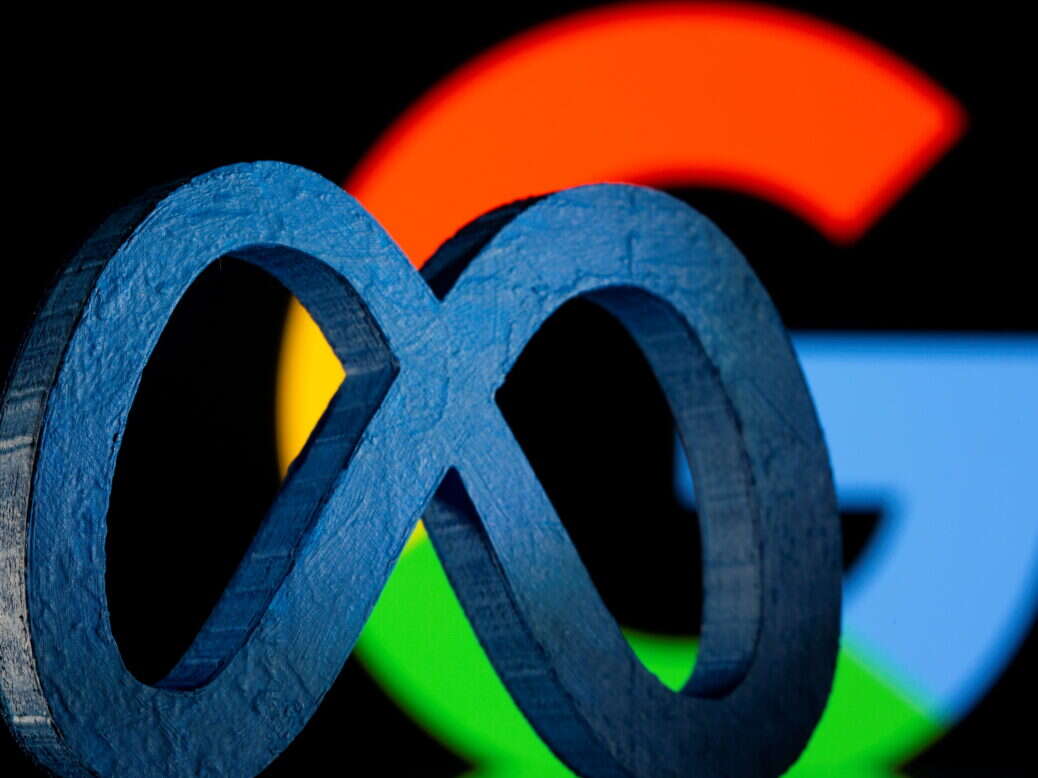
British news content is worth around £1bn a year to Google and Meta, a new academic report today claims.
The paper, written by University of Cambridge economics professor Matthew Elliott, has been published by the News Media Association (NMA), which represents British news publishers.
The NMA says the research demonstrates that the UK “urgently” needs legislation to force the tech giants – known as the Duopoly because of their ad market dominance – to pay news publishers for their content.
Elliott’s research, titled ‘Value of News to Digital Platforms in the UK’, estimates that Google earned £10.8bn in Britain in 2021 and Meta (previously known as Facebook) £5.3bn.
To calculate the value of professionally-gathered news to the giants, Elliott sought to estimate how much Google and Meta’s UK revenues would decline without this content.
He estimates that news is worth £615-840m a year to Google, and £235m to Meta. Therefore, he says, news content is worth between £850m and £1.075bn to the Duopoly overall.
Click here to subscribe to Press Gazette’s must-read newsletters, Future of Media and Future of Media US |
In a statement, Elliott said: “News publishers are pillars of democracy, making significant investments to provide crucial information to the public on events shaping our society. News is also important for digital platforms, providing a stream of fresh and relevant content that keeps users engaged and returning.
“Estimates based on company reports indicate that between them Google and Facebook earn more than £16bn a year in the UK. They share little, if any, of these revenues with the publishers on whose news content they rely.
“By considering how much revenue Google and Facebook might lose if news content were to be withheld, it is estimated that the value of news to the platforms is about £1 billion a year.
“If the public is to continue to be served with high quality news, the benefits from the investment in journalism made by news publishers should mainly accrue to them, not Google and Facebook. The fact that high quality news content generates wide benefits to society makes this problem acute.”
Owen Meredith, chief executive of the NMA, said the study “demonstrates the commercial importance and value of news publishers’ content to Google and Facebook and makes clear the urgent need for much greater trust and transparency in the digital marketplace”.
Earlier this week, the UK government announced that it would be introducing a draft Digital Markets, Competition and Consumer Bill within the next parliamentary year. By empowering the newly-formed Digital Markets Unit, this legislation could be used to force Google and Meta to pay publishers for news content.
Australia introduced equivalent legislation last year. It is believed to have resulted in Google and Meta paying publishers more than AU$200m a year in content deals. Canada has pledged to introduce a similar law this year.
In the UK, Meredith said it is “now essential that the DMU is given the statutory powers it needs to usher in a truly competitive digital marketplace as soon as possible.
“The new regime will see news publishers fairly rewarded for their investment in the journalism that delivers so much benefit to the public.”
Google and Meta have regularly dismissed research like this. They claim that they are more valuable to news publishers than vice-versa. Meta, for instance, claims that it sent 180bn global clicks, worth an estimated $9bn (£7.4bn), to publishers in its News Page Index in 2020.
Explaining in the study why news content is important to platforms, Elliott writes: “News content has several characteristics that make it particularly relevant to engaging users and capturing valuable data for online advertising.
“First, news provides reliable information – news publishers invest significantly in journalists and editors to generate news content and ensure reporting is properly sourced and fact checked.
“Second, news provides frequently updated content on a wide range of topics of interest to users, including breaking news, sport, politics, entertainment, product reviews, and a wide variety of other topics.
“Third, users who engage with news content tend to do so frequently, providing “fresh”, or frequently updated, data relevant to a user’s current interests and intent.
“Fourth, user engagement with news content can signal intent that is of particular value for advertisers, such as intent to move to a new house, purchase a car, take a holiday, and many other such actions, as well as relevant user characteristics including profession, leisure interests, age group.”
Google and Meta will take exception to the suggestion they do not share enough revenue with UK publishers.
Meta says it pays UK publishers tens of millions of pounds for their participation in the Facebook News programme. It has also invested $17m (£12.5m) in its Community News Project in the UK.
Google last year launched its licensing aggregator, News Showcase, in the UK, and also invests millions through the Google News Initiative.
Photo credit: Reuters/Dado Ruvic
Email pged@pressgazette.co.uk to point out mistakes, provide story tips or send in a letter for publication on our "Letters Page" blog
